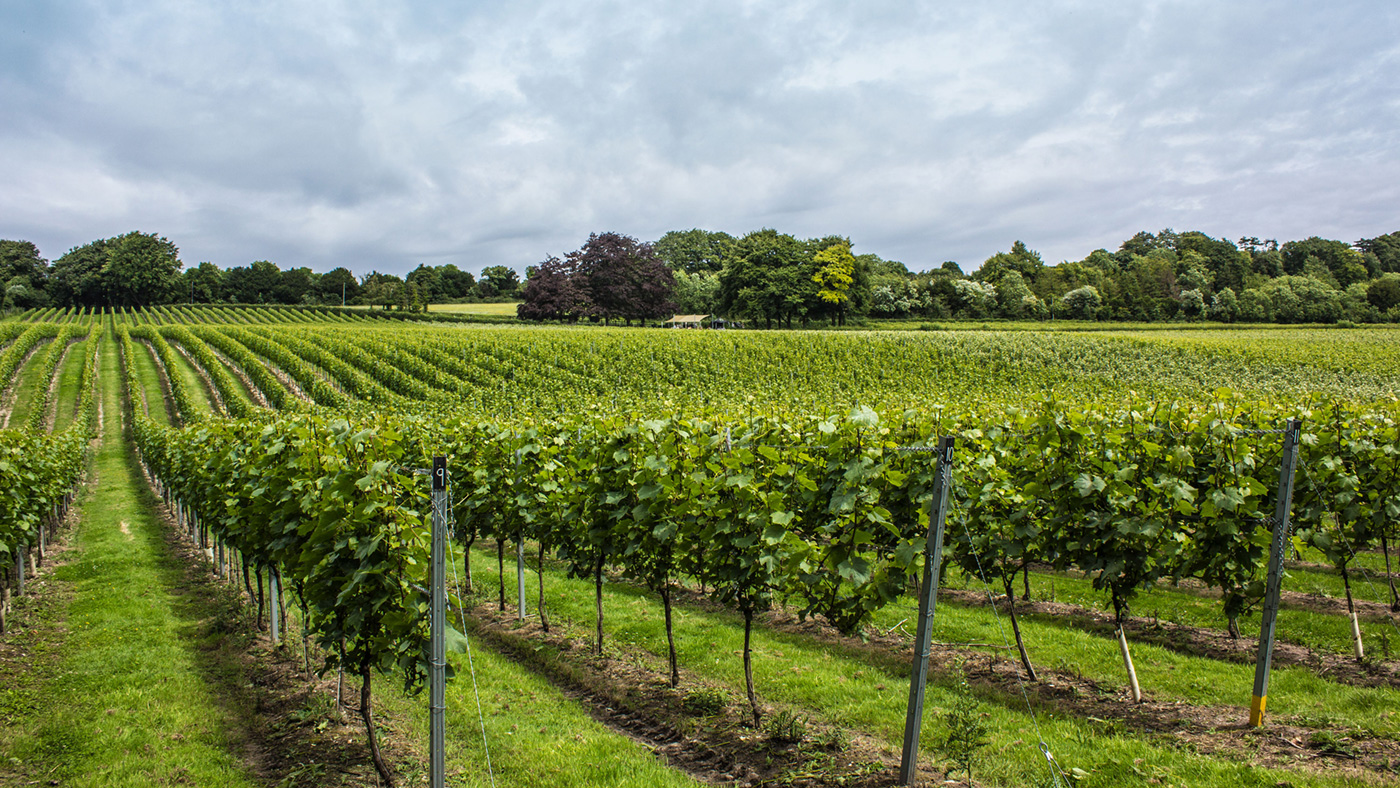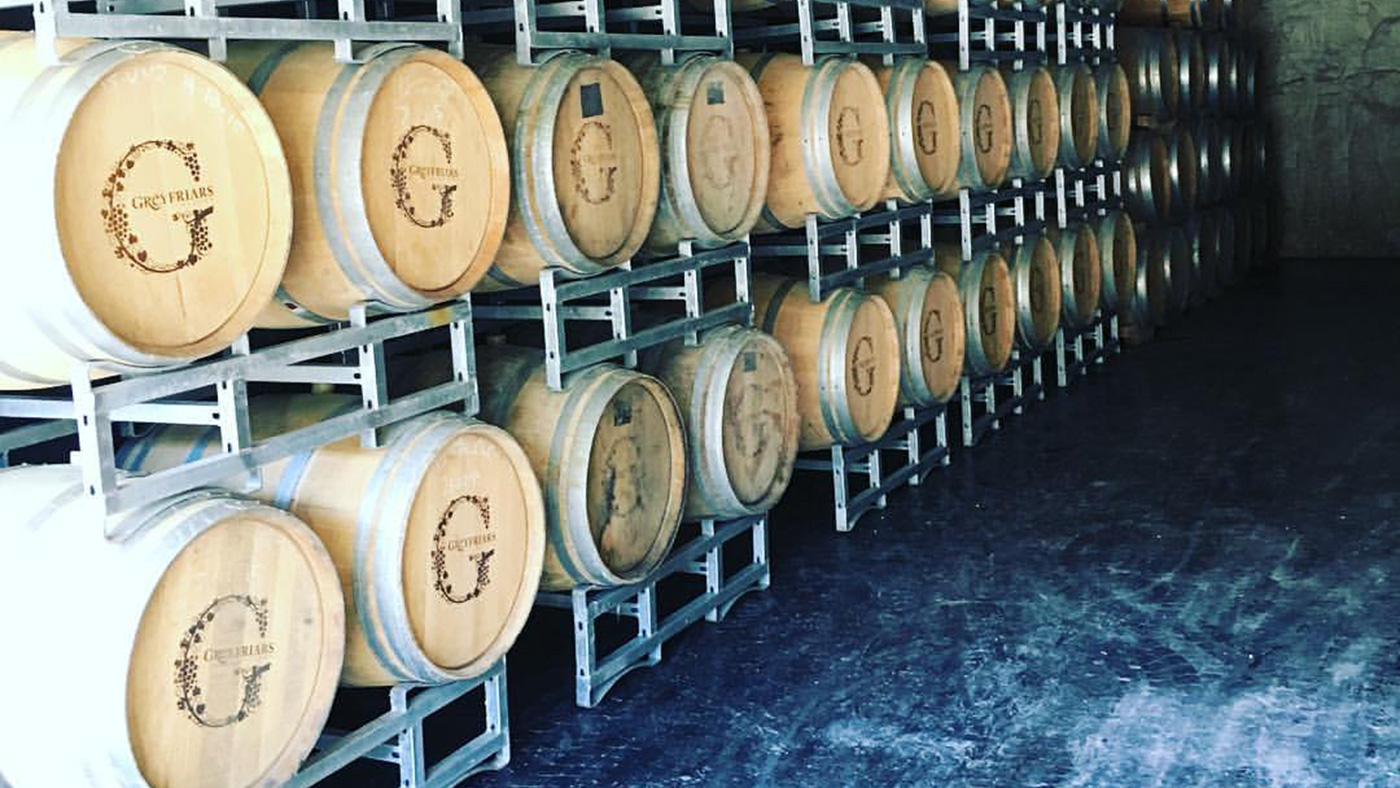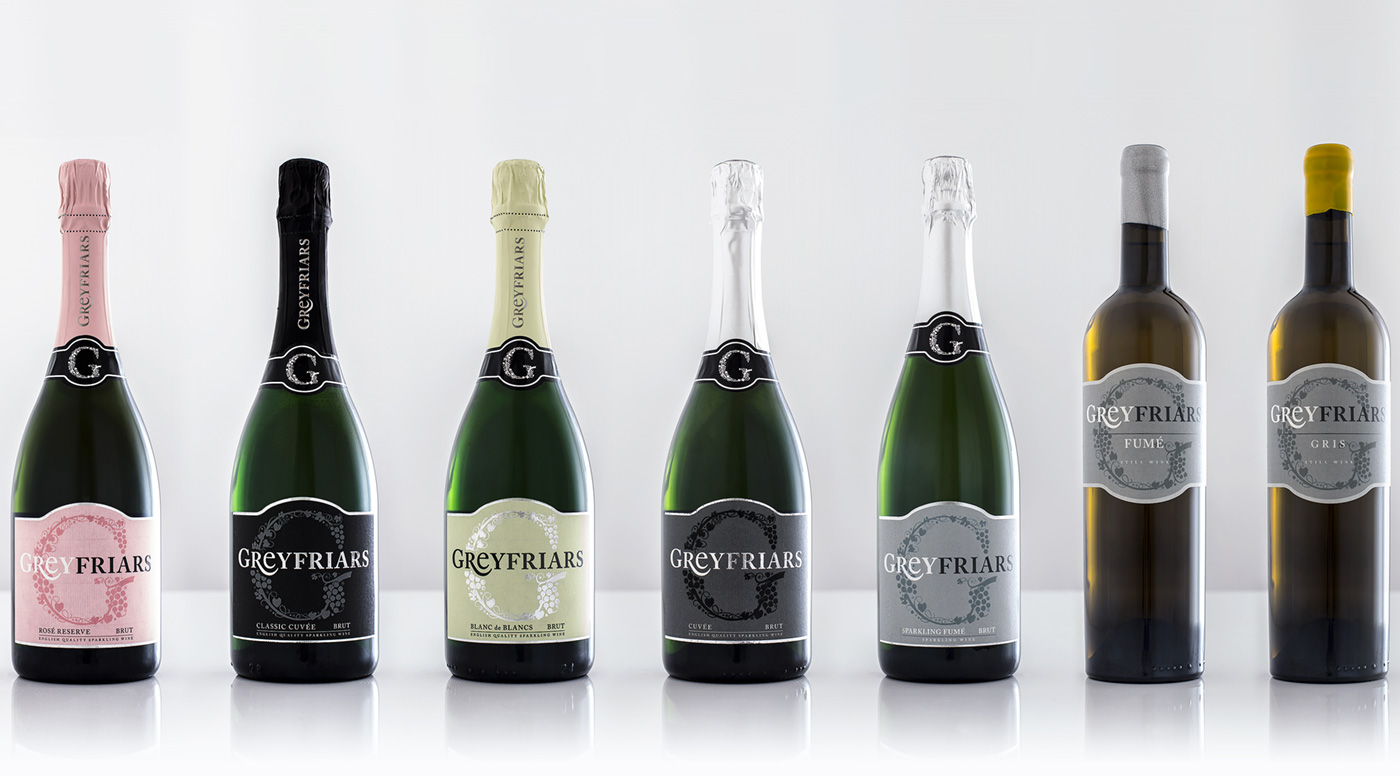Greyfriars Vineyard: a sparkling future for English wines
Winemaker Mike Wagstaff on the grapes he believes will maintain England's hard-earned reputation

A free daily email with the biggest news stories of the day – and the best features from TheWeek.com
You are now subscribed
Your newsletter sign-up was successful
We are situated just outside Guildford in Surrey, on the Hog's Back on the North Downs. Our terroir is a south-facing slope made up of several hundred feet of free-draining chalk with about six inches of scrappy topsoil – not great for some crops, but perfect for vines.
There's been a vineyard on the site for nearly 30 years. The previous owners planted a couple of acres and, in a good year, could produce a couple of thousand bottles. We took over in 2010, with the idea of expanding to a proper commercial scale. We now have 50 acres and produce 80,000 bottles. Around 95 per cent of the vines are the three champagne varieties – chardonnay, pinot noir and pinot meunier – but we also have a small amount of pinot gris and sauvignon blanc (with the latter going into an unusual sparkling fume).
We are building chalk cellars for 300,000 bottles, deep in the hills – they're known as crayeres in Champagne – because making sparkling wine in the traditional method means ageing for a long time on the lees.
The Week
Escape your echo chamber. Get the facts behind the news, plus analysis from multiple perspectives.

Sign up for The Week's Free Newsletters
From our morning news briefing to a weekly Good News Newsletter, get the best of The Week delivered directly to your inbox.
From our morning news briefing to a weekly Good News Newsletter, get the best of The Week delivered directly to your inbox.

In 2013, we produced our first wines from our 2011 vintage – blanc de blancs and sparkling rose, which continue to be our two signature wines. In the first few years, we had a consultant oenologist – Hans Schleifer, German-born but a real expert on English wines, having worked at Camel Valley and Denbies in the past. He has just retired, but he's set us on the right path and instilled his discipline and work ethic in us.
In this country, winemakers fall into two camps – the German way of working or the French way. They are as you might expect: German agriculture is the most efficient in the world and the French way is to insist that the way something's been done for 600 years must be the right way. As an engineer by trade, I tend towards the German approach.
I think English sparkling wines' battle for recognition is pretty much won. When we first started tours of the winery, we'd ask who'd drunk English wines and a few hands would go up; now it's the majority. These days, the challenge for English winemakers is two-fold: pricing our wine at an attractive level and establishing a recognisable English style.
On price, if you charge £30 a bottle, you're competing head-on with big-name champagnes, with hundreds of years of heritage, and that 'Champagne experience'. Even if our wine is just as good, we don't have that added extra. We retail our vintage wines at £21 a bottle from the cellar door, and our non-vintage cuvee at £18.50.
A free daily email with the biggest news stories of the day – and the best features from TheWeek.com
In one way, the character of English wine is its variety. We're not like a small appellation in France or Italy with well-defined geology, grape types and fixed rules of winemaking, because we have vineyards from Cornwall to East Anglia. I think it'll take another five or ten years for everyone to work out how to maximise our terroir. Personally, I feel that chardonnay-led sparkling wines (either 100 per cent chardonnay in blanc de blancs or simply predominant in blends) will be the dominant style. In cool climates like ours, the citrus notes of chardonnay are accentuated really well.
Having said that, I find pinot meunier is an underrated grape in the methode traditionelle blend – it brings more character than people give it credit for. We planted more in 2015, which will come to fruition this year, so we're looking forward to working more with it. Our 2013 sparkling rose reserve is 100 per cent pinot noir. It is a pale, Provencal-style colour and, though it has red fruit and vanilla complexity, it's very dry. In the 2014 sparkling rose, we blended in 10 per cent pinot meunier, because it brought a different expression of fruit – bright and spicy to complement the dark cherry and berry of the pinot noir.

We actually produce two styles of sparkling chardonnay wine now – oaked and unoaked blanc de blancs. We originally decided to split the juice and ferment it separately, with the idea of blending it back together, but the base wines from the steel tank and the oak barrel were so different, we decided to bottle them separately.
The unoaked is a light, crisp wine with fantastic citrus aromas – an ideal aperitif. The subtly oaked blanc de blancs adds vanilla notes and brings out the complexity of the citrus and goes with a greater variety of food.
The oaked blanc de blancs has a very low 5g/litre dosage. That's partly because Greyfriars' style is towards the dry side, but also because, philosophically, I have a bit of a problem spending three years creating a lovely wine and then smothering it with a dollop of syrup three seconds before you put the cork in.
English vintages are different from the rest of the world – and a little erratic. Most of Europe would talk about 2015 in more glowing terms than 2014, but in England – in terms of yield and quality – 2014 is a legendary vintage. I think 2016 wines will be even better. Some English producers might disagree, because it was a tough year, with frost and mildew meaning a lot of fruit was lost. But, if you had grapes by August, when the sun came out, as we did, the quality by October was excellent. So that is something to look forward to.
MIKE WAGSTAFF started his career as an engineer with Shell and spent most of his working life in the oil industry. When the company he worked for was sold in 2009, he joined forces with his wife Hilary and her brother-in-law David Line to take over Greyfriars Vineyard; greyfriarsvineyard.co.uk
-
 The environmental cost of GLP-1s
The environmental cost of GLP-1sThe explainer Producing the drugs is a dirty process
-
 Greenland’s capital becomes ground zero for the country’s diplomatic straits
Greenland’s capital becomes ground zero for the country’s diplomatic straitsIN THE SPOTLIGHT A flurry of new consular activity in Nuuk shows how important Greenland has become to Europeans’ anxiety about American imperialism
-
 ‘This is something that happens all too often’
‘This is something that happens all too often’Instant Opinion Opinion, comment and editorials of the day